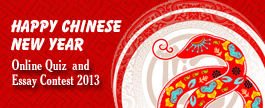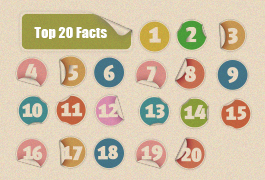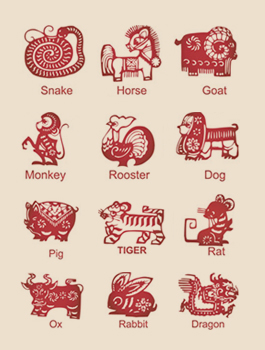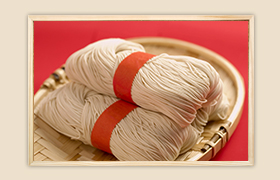Emperor Gao
(Chinadaily.com.cn)
Updated: 2013-02-07
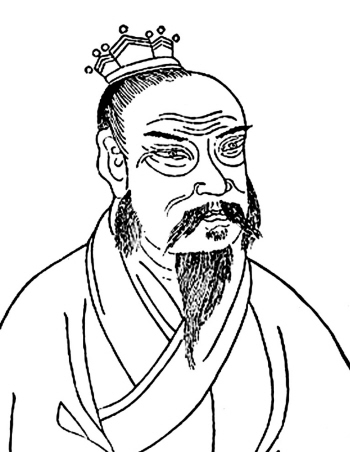
Emperor Gaozu (256 –195 BC), personal name Liu Bang, was the first emperor of the Han Dynasty, ruling over China from 202 BC to 195 BC. Liu Bang was one of the few dynasty founders in Chinese history who emerged from the peasant class (another major example being Zhu Yuanzhang of the Ming Dynasty).
As an outstanding politician, strategist and director, Liu Bang made great contributions to the development of Han people and its culture. In 206 BC, he rebelled against the despotic rule of the Qin Dynasty (221 - 207 BC) and together with Xiang Yu, led the uprising army against the Qin. In October of 206 BC, he and his army attacked Xianyang, the capital city of the Qin and overthrew the Qin Dynasty.
In his youth, he was considered as a futile boy because he usually played truant and seemed to have no ambition. Later Liu was very lucky to be a low-ranked official in Sishui and, to some degree, was well-known among the neighborhoods. One day, as he saw Emperor Qin Shi Huang sitting in a delicate and gorgeous carriage he admired so much, thought that it should be a real man to be bestowed such luxuriant treatment. Since then, Liu started to show his distinct personal strength.
Chu-Han War and Hongmen Banquet
In 209 BC, Liu Bang held high the banner of the rebellion against the tyranny of the Qin Dynasty. After about two-year warfare, the Qin Dynasty was overthrown. At that time, Xiang Yu, the director of another rebellion group, was very angry to hear that Liu had captured Xianyang ahead of him. For the next four years, Xiang and Liu waged a war to vie for the throne, namely Chu-Han War. The war ended with the victory of Liu Bang.
During the Chu-Han War, at a time when the military force of Xiang Yu had the advantage over that of Liu Bang, the Hongmen Banquet was a pivotal event. One day, Xiang Yu invited Liu Bang to a banquet with the purpose of killing Liu. However, during the meal, Xiang became pretty arrogant at Liu’s modest and flattering words. This caused him to hesitate in carrying out his plan to kill Liu. Liu with the assistance and protection of Zhang Liang, Xiang Bo and Fan Kuai, took this opportunity to escape from the military base of Xiang Yu.
Credited with his ability to both adopt his subordinate’s good advice as well as the political acumen to unite other anti-Xiang Yu forces, he eventually won the war. Xiang Yu, well-known as the King of Western Chu, committed suicide by cutting his throat with a sword beside Wujiang River.
Establishment of the Han Dynasty
In 202 BC, Liu Bang established the Han Dynasty with the capital of Chang’an (Xian). In the history books, this period was called the Western Han Dynasty. Now that he sat on the throne, over the next several years in order to better consolidate his power, Liu disposed of Han Xin, Xiao He, Ji Bu and Ding Gong, the meritorious ministers in the warring period.
After he ascended the throne, his first step was to abolish the harsh law of the Qin Dynasty and establish a new one that was supported by the people. Liu also took a series of measures that were good for his people. He ordered the reduction of field taxes levied on the peasants and let the armies go back to farming. Because of his strong leadership and effective measures, the economy recovered quickly and stability returned to the society. In the annuals of Chinese history, Liu Bang was regarded as an emperor who contributed a tremendous amount to the prosperity of the Han Dynasty.
Changling Tomb - The Mausoleum of Liu Bang
Changling Tomb, located in the northwards of Xian and eastwards of Xianyang, is the highest spot of Xianyang and the site of Xianyang Palace of the Qin Dynasty. Standing here, the whole environs of Xian can be seen. It is in the south of Changling Tomb that Liu Bang and his empress, Lv Zhi, were buried, about 250 meters (around 820 ft) apart. Besides, six large-scale sites of the original imperial palace can be found in the northwest, southwest and southeast of Changling Tomb.


